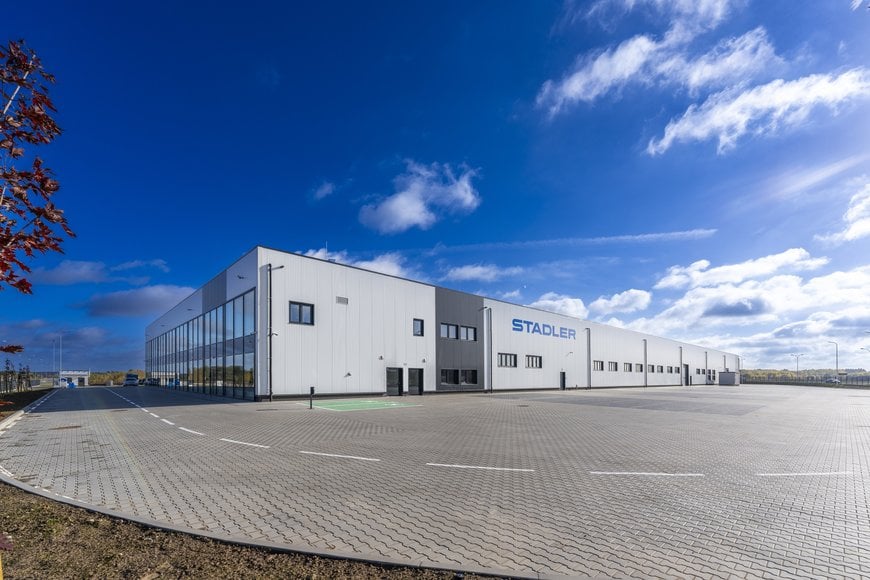Stadler Converter – Stadler's new plant in Białystok (Poland) launched
Stadler has opened a new plant in Białystok, where it will manufacture DC power converters for rail vehicles, producing more than units 500 per year and creating up to 250 jobs.
stadlerrail.com

There will be a competence centre for traction power converters for the whole Stadler Group.
The Stadler Converter plant specialises in the development and production of traction and auxiliary power converters and battery chargers for the urban transport vehicles: trams, metro, as well as tailor-made vehicles such as rack and pinion and narrow-gauge railways. The plant will supply other production plants that are part of the Stadler Group. Including converters manufactured at other Stadler locations, more than 1,000 vehicles with Stadler converters will be in operation by mid-2026.
The state-of-the-art plant covers 7, 000 square metres. It features innovative technologies that enable power converters to be tested in laboratory mode, simulating conditions similar to those on a vehicle. The plant features production areas and a laboratory, as well as a warehouse, offices, social rooms and a car-park.
250 new jobs in Podlasie region
The newly opened plant in Bialystok has already recruited almost 100 employees, and ultimately will employ up to 250 people. The company is actively recruiting people with a wide range of skills and experience, particularly in the areas of construction, electrical, control and software engineering. Stadler is also looking for individuals with expertise in system engineering in the field of power electronics, as well as specialists in commissioning and service.
«I’m very pleased that Stadler has successfully opened another plant in Poland. We are expanding the scope of our local operations to include the production of power converters, which we will supply to all production plants within the Stadler Group» – commented Wioleta Pyt - operations director at Stadler Converter. «As a competence centre, we will work in Białystok on the further development and improvement of our products. We are also planning to collaborate with local partners – suppliers of materials and services, as well as with education institutions. We will create approx. 250 new substantive postsThe development of local competences will be particularly important to us, and we plan to work with the Białystok University of Technology to do this. We are proud that we can help strengthen the local labour market, developing local talent and supporting the local supply chain. We look forward to achieving these goals together with our partners in the region.»
Stadler in Poland – added value for the region and industry
Stadler Converter is another example of Stadler’s investment in Poland. The company has had a presence in this country since 2006 and has been gradually developing its operations there. It has expanded its plants, creating skilled jobs and, together with local partners, produced modern rail vehicles for transport organizations all over Europe. As well as the plant in Białystok, Stadler has production plants in Poland in Siedlce and Środa Wielkopolska. The Stadler Polska plant in Siedlce produces rail vehicles for Polish and foreign customers.
The Stadler Środa plant produces steel carbodies for trams. In addition, Stadler maintains in Poland fleets of trains for Polish customers – Koleje Mazowieckie (71 FLIRT vehicles), PKP Intercity (20 FLIRT vehicles) and Łódzka Kolej Aglomeracyjna (20 FLIRT vehicles). Stadler's Polish plants also built and supplied 110 TANGO Lajkonik trams for the city of Kraków. Currently, approximately 70% of Stadler's total production in Poland is export orders. To date, Stadler has supplied a total of over 980 vehicles in Poland for 17 countries. The company employs approximately 1,500 people at its various
locations.
www.stadlerrail.com

